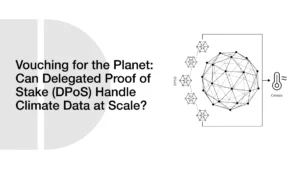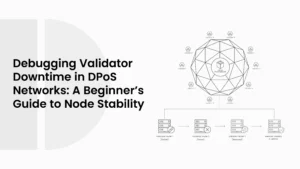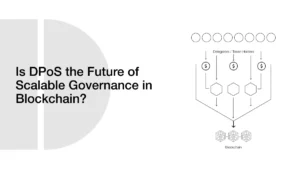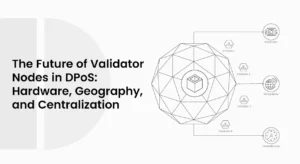Is DPoS Really Decentralized? A Deep Dive for Non-Techies
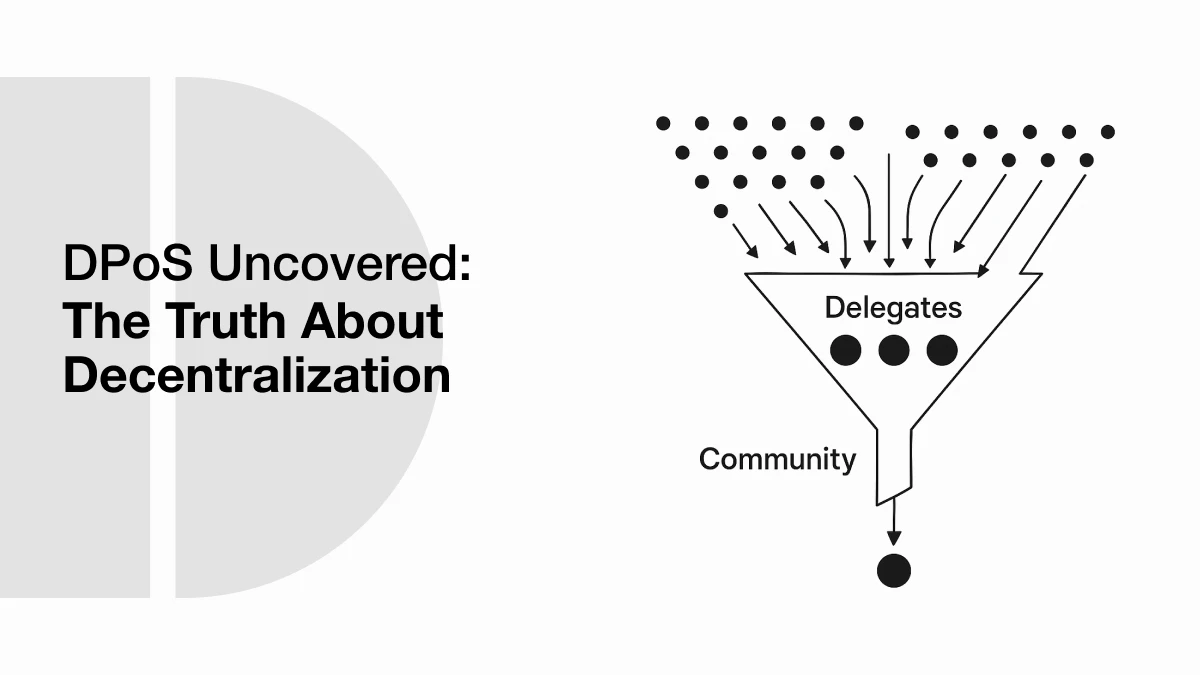
Decentralization has become one of the most important principles in the blockchain world. It promises networks that are not controlled by any single authority, where decision-making power is distributed fairly among participants. But when it comes to Delegated Proof of Stake (DPoS), a consensus mechanism used in popular blockchains like EOS and Tron, the question often arises: Is DPoS truly decentralized?
- What Does Decentralization Really Mean?
- How DPoS Works at a Glance
- The Decentralization Debate: The Core Issue
- 1. Concentration of Voting Power
- 2. Low Voter Participation
- 3. Delegate Collusion and Vote Buying
- How DPoS Attempts to Stay Decentralized
- Continuous Voting and Delegate Rotation
- Open Candidacy
- Transparency and Community Oversight
- Comparing DPoS to Other Models
- So, Is DPoS Truly Decentralized?
- Final Thoughts
- Frequently Asked Questions (FAQs)
- Glossary of Key Terms
While DPoS was designed to improve efficiency and scalability without sacrificing decentralization, the structure of its voting and delegate selection process has led many to question whether it genuinely delivers on that promise. This article takes a clear, non-technical look at how DPoS works, how decentralization is defined in this context, and what factors influence whether a DPoS network can be considered truly decentralized.
What Does Decentralization Really Mean?
Before examining DPoS, it’s important to define decentralization in simple terms. In blockchain, decentralization refers to the distribution of power and control across many participants instead of relying on a central authority. This ensures that no single party can manipulate or override the system.
A truly decentralized blockchain should allow broad participation, prevent collusion, and ensure that decision-making power isn’t concentrated in a small group. Transparency, censorship resistance, and community-driven governance are key signs of a healthy decentralized network.
How DPoS Works at a Glance
Delegated Proof of Stake is a system where token holders vote to elect a limited number of trusted participants called delegates or block producers. These elected delegates are responsible for validating transactions and adding new blocks to the blockchain.
Unlike traditional proof-of-work systems that rely on thousands of miners competing to solve puzzles, DPoS limits block production to a fixed group of selected delegates. This makes the network much faster and more energy-efficient. Delegates are incentivized with rewards, and token holders can choose to vote for new delegates at any time based on performance, trust, or proposed incentives.
The Decentralization Debate: The Core Issue
At first glance, DPoS appears to be decentralized because anyone holding tokens can vote and influence who runs the network. However, the limited number of delegates, typically ranging from 21 to 100 depending on the blockchain, often leads to questions about how distributed the control truly is.
ALSO READ: Why DPoS Is One of the Most Energy-Efficient Blockchain Consensus Models
The main concerns around DPoS decentralization include:
1. Concentration of Voting Power
In most DPoS systems, voting power is directly linked to token ownership. This means that individuals or entities with large holdings can have a much greater influence over elections. In some cases, a few wealthy participants can dominate the vote and consistently elect the same group of delegates.
This undermines the principle of fair participation and can lead to centralized control over validation and governance.
2. Low Voter Participation
Many DPoS networks suffer from low voter turnout. Even though the system allows anyone with tokens to vote, the majority of holders often remain inactive. This leaves a small subset of the community responsible for deciding who controls the network, which reduces the practical level of decentralization.
Active participation is essential for the delegate model to function as intended, but maintaining high engagement over time is a known challenge.
3. Delegate Collusion and Vote Buying
Delegates can offer incentives to attract votes, such as sharing block rewards with supporters. While this may seem like a way to encourage participation, it can also lead to unethical behavior such as vote buying, where delegates win elections not based on merit or trust, but on the rewards they offer.
In some cases, groups of delegates may form alliances to secure their positions, effectively limiting competition and making it difficult for new, independent candidates to gain visibility. This type of behavior erodes the core values of decentralization.
How DPoS Attempts to Stay Decentralized
Despite these challenges, DPoS systems include several mechanisms aimed at preserving a degree of decentralization.
Continuous Voting and Delegate Rotation
Voting in DPoS systems is ongoing, not fixed. Delegates must continue to earn the community’s trust and support to stay in power. If performance drops or misconduct is exposed, voters can quickly replace them. This creates a level of accountability that is often lacking in other models.
Open Candidacy
Most DPoS blockchains allow anyone with the necessary technical capabilities to run for election as a delegate. There is no gatekeeping by central authorities. This openness is a foundational aspect of decentralization, giving new participants a chance to enter the system.
Transparency and Community Oversight
All voting results, block production performance, and delegate actions are recorded on-chain and visible to the public. This level of transparency gives the community the tools to assess and respond to issues, helping protect the network from silent manipulation.
Comparing DPoS to Other Models
Compared to Proof of Work (PoW), where mining pools often control the majority of the network, DPoS can be more responsive and easier to manage. However, PoW generally has a broader set of validators, which can spread control more evenly.
Traditional Proof of Stake (PoS) gives block validation rights directly to token holders based on the size of their stake. While this can seem more decentralized, it often results in long-term control by large holders with little room for community input or correction. DPoS, in contrast, introduces a feedback loop through voting and community scrutiny, although this only works well if the community remains engaged.
So, Is DPoS Truly Decentralized?
The answer depends on how decentralization is measured. In terms of access and openness, DPoS offers strong foundations. Anyone can run as a delegate, and all token holders can vote. The voting system is transparent, and there are regular opportunities to make changes to the validator set.
However, the practical execution of Decentralized Proof of Stake often reveals centralization risks. A small number of large token holders can dominate elections. Low voter turnout limits accountability. Delegates can form tight-knit groups that reduce competition. These issues make it difficult to call DPoS “fully decentralized” in practice, even if the system is designed with decentralization in mind.
Final Thoughts
Decentralized Proof of Stake is a powerful consensus model that offers high speed, low energy consumption, and clear paths for community participation. Its design is flexible, and its governance mechanisms are open. But like any system, its success depends on how actively it is used and monitored.
For non-technical users, the key takeaway is that DPoS has the potential to be decentralized, but only when the community takes an active role in voting, monitoring delegates, and demanding accountability. Without that engagement, the system can slide toward centralization, even if the structure itself remains democratic.
In short, Decentralized Proof of Stake is not perfect, but with the right level of transparency, voter education, and participation, it can strike a workable balance between performance and decentralization in real-world blockchain networks.
Frequently Asked Questions (FAQs)
- What is Delegated Proof of Stake in blockchain?
Decentralized Proof of Stake is a consensus mechanism where token holders vote for delegates to validate transactions and produce blocks. - Is Decentralized Proof of Stake more decentralized than Proof of Stake (PoS)?
Not always. While Decentralized Proof of Stake enables community voting, power can become concentrated among large stakeholders, reducing decentralization. - What are the main risks of centralization in Decentralized Proof of Stake?
Concentrated voting power, low voter turnout, delegate collusion, and vote buying can lead to centralized control. - How does Decentralized Proof of Stake compare to Proof of Work (PoW)?
Decentralized Proof of Stake is faster and more energy-efficient than PoW, but PoW often has a broader validator base, which may support stronger decentralization. - Can anyone become a delegate in a Decentralized Proof of Stake network?
Yes, most DPoS systems allow any technically capable participant to run as a delegate without central authority approval. - Why does voter participation matter in Decentralized Proof of Stake systems?
High participation helps prevent centralization and ensures delegates are held accountable through active, community-driven voting. - Is Decentralized Proof of Stake decentralized in real-world use?
It depends. While DPoS is designed for decentralization, real-world challenges like voter apathy and token concentration can compromise it.
Glossary of Key Terms
- Delegated Proof of Stake: A blockchain consensus model where token holders vote for a small group of block producers.
- Decentralization: The distribution of control and authority across a wide network rather than a central entity.
- Block Producer (Delegate): A node elected to validate transactions and add blocks in a DPoS network.
- Voting Power: The influence a token holder has in electing delegates, usually proportional to their token holdings.
- Vote Buying: The unethical practice where delegates offer rewards to gain votes.
- Collusion: Secret agreements among delegates to manipulate results or retain control.
- Open Candidacy: A feature allowing any eligible participant to apply as a delegate.
- Stakeholder: A person or entity that holds tokens and has voting rights in a DPoS system.
- Transparency: Public visibility into blockchain data and governance processes.
- Consensus Mechanism: The protocol by which blockchain participants agree on the state of the ledger.

